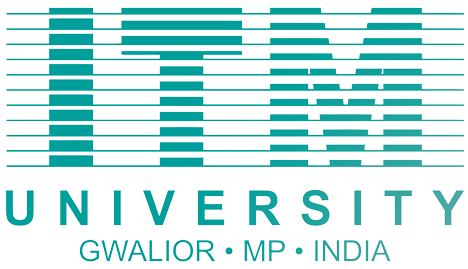Report of seminar, “advance materials for better future”
To discuss the scientific progress made in different aspects of material research a national seminar on “Advance Material for better future” was organized on 04 April 2014 by department of Physics, ITM University Gwalior. The main objective was to elaborate the area, scope and significance in present scenario of research development for human welfare and deepen the knowledge and practical ability of students and research scholars of advance material (liquid crystal, carbon nanostructures, materials for spintronic devices, Bio-sensors, Nano materials).
The seminar highlighted the importance of advance material research. The event was attended by more than 200 students, research scholars, scientists and teaching faculty of different colleges and universities like Jiwaji University, RJIT , ABVIIITM, Science College, SLP College, MITS gwalior
The seminar started with the opening and welcome remarks of Dr. Y. C. Goswami , coordinator of seminar. At the outset he thanked university management for giving opportunity in conducting, the seminar on advance material which is an emerging field of research in fundamental and applied aspects. He said that the seminar was an attempt to provide a platform for the study of present scenario of Advance material research work and their application in every day life. Dr. Archana Kansal HOD of Physics department presented the objective of the seminar followed by a beautiful poem on role of impurities in materials.
The seminar was spread over 3 technical sessions in which eminent scientists and professors delivered talks on diverse areas related to the topic as Spintronics, carbon nanostructures, biosensors.
Chief guest of the seminar Dr. R. K. Kotnala scientist G , NPL (National Physical laboratory) in his keynote address discussed the concept of electron spin he also explained how electron spin can be used with its charge to increase the memory of the devices and speed of data processing. He has taken the example of the spin Hall Effect. In which the conversion of charge current into transverse spin current has been investigated in his lab in sputtered Co/Pt bilayer thin film. Field swept measurements wave conducted separately with a magnetic field applied along and perpendicular to the film plane to analyze magnetic anisotropy in the film to understand spin pumping of polarized electron.
Prof. V. D. Vankar Professor in Physics IIT Delhi delivered invited talk on “Carbon Nanotube/ Carbon Nanostructure – exotic materials”. He explained potential application of CNT which is basically rolled up graphene sheets, in field emission display devices, microelectronics, gas sensors and biosensors. The unique geometry, high aspect ratio, better chemical and the thermal stability leads to these applications. Reliable growth techniques capable of fielding high quality material in desired amount are important to the potential application, which are limited by the growth technique of Carbon Nanotubes. The most interesting point of this lecture was the recipes of artificial diamond.
In Second session Dr. V. K . Rao scientist F DRDE Gwalior delivered talk on the role of nanomaterials in explaining the sensitivity of biosensors. He emphasized on realizing biosensors with immobilization of bio molecules on to the transducer and also using a suitable transducer for sensing purpose. However the materials presently used in biosensors development are inadequate for achieving highly sensitivity and stable biosensor. While the nanomaterials on immobilization will be able to hold more amount of biomolecules due to their large surface area. Some of the nanomaterials are capable of offering new methods of immobilizing and also enhancing the sensitivity of biosensors. The nanomaterials will help in finding new modes sensing hitherto unused and unknown for micro and macro materials. In general nanomaterials and nanostructures are expected to help in developing biosensors having multi analytic capability, low power requirement, cheap, mass producible and easy portability.
All the session were interactive, students asked various quarries that are solved by the experts. In poster session students of various colleges and universities has presented around fifty posters on nanomaterials, organic nanoelectronics, properties of nanostructures, composite materials, shape memory alloy, spin polarization and ECO friendly electronics.
In the valedictory session Dr. Archana Kansal presented the consolidated report of various sessions. Prizes are distributed for best poster under two categories, one for UG students and one for research scholars. In UG group the first position is secured by group of Anuj Tomar, Adarsh Jain, Aman Soni on shape memory alloy while second position is secured by group of Vikas Kumar, Abhinay Sharma, Abhimanyu Kumar on composite material.In group of Research Scholars, first position is secured by Idris -Hamid Bhat of Jiwaji University on spin polarization while second position is secured by Subhi Kansal of MITS Gwalior on eco friendly electronics. Students were awarded for best question also for each invited lecture.
Seminar ends with the vote of thanks to speakers, patrons, members of Advisory board, organizing committee, faculty members and above all to students by Mr. Uday Gahlaut, Asst. Prof. Physics Dept.



